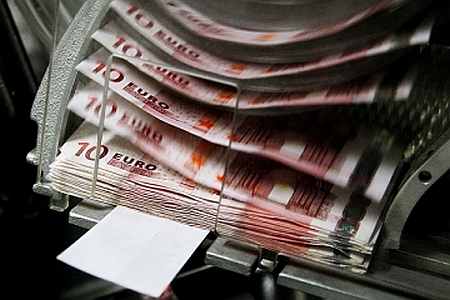 | « Back to article | Print this article |
 India's markets are likely to be in the line of fire
India's markets are likely to be in the line of fire
The Greek debt crisis is now entering its endgame.
The referendum this Sunday is crucial. Greece's 11 million citizens must decide if they will accept the terms offered by external creditors.
If the referendum verdict is 'No', Grexit, or exit from the European currency union, is almost a certainty.
Leading up to the referendum, financial turmoil is inevitable.
India's markets will also be in the line of fire, even though the Indian economy has relatively few linkages to Greece.
On Monday, bond yields widened in most markets and all equity markets absorbed big losses. The Indian stock market, too, suffered as the Sensex, BSE's benchmark index, closed the day down 166 points.
This was the second consecutive session when the Indian stock market declined, marking its biggest single-day loss in nearly two and a half weeks.
The possibility of Grexit had been staved off for five years by a succession of bailouts.
But now Greece seems certain to default on a euro 1.6-billion repayment to the International Monetary Fund. Although default is expected, it will not be good for sentiment.
The European Central Bank must take a call on what it does in the event of default since the current bailout package is also scheduled to end on Tuesday.
Massive volatility will continue across markets, given uncertainty about the future of the unified currency.
A Greek default could tempt other highly indebted economies such as Italy and Portugal into considering abandoning the euro.
Given the circumstances, there may well be a massive exit from the euro, with investors headed for the haven of US Treasury bills, or other hard-currency assets. Greece has shut down its banking system to prevent capital flight.
This is a short-term measure.
If there is Grexit, and a return to the drachma, the Greeks must figure out normal capital controls.
The troika of the IMF, the ECB and euro zone creditors such as German banks is prepared to extend the bailout by five more months and to throw an additional euro 15.5 billion into the pot.
In return, the Greeks must embrace more reform, which will also require more austerity. Unemployment is already at over 25 per cent.
Staying with the euro will prevent monetary stimulus via currency depreciation.
It is also very hard to predict what the troika will do if Greece says "No" to this package. Will they offer easier terms? Or will they finally bite the bullet and write off all the losses?
Greece itself contributes less than two per cent of the euro zone's gross domestic product and India's direct exposure is not high. But Indian corporations with exposure to the euro zone could see revenues impacted by currency volatility.
Foreign portfolio investors may also choose to cut exposure to high-risk emerging market assets such as rupee bonds and stocks, until the crisis resolves one way or another. The Union finance secretary has made reassuring noises, which helped to talk the Sensex up.
But he also admitted there is no concrete plan for tackling Grexit. Indeed there cannot be, given the fluidity of current news flow and the inherent unpredictability of referendums.
 The Reserve Bank of India has a record level of foreign exchange reserves at its disposal, so it should be able to manage currency volatility, unless that goes absolutely off the scale.
The Reserve Bank of India has a record level of foreign exchange reserves at its disposal, so it should be able to manage currency volatility, unless that goes absolutely off the scale.
This crisis may actually create an opportunity for long-term investors in India, and maybe also in China, whose markets, too, saw a three per cent decline on Monday, falling below their 100-day moving average for the first time since the rally began in the third quarter of 2014.
Neither economy should be badly affected in fundamental terms.
But the respective stock markets have seen sharp corrections and the corrections could continue until this situation is resolved.
If equity valuations drop to healthy levels, a price recovery could be driven by bargain hunters.